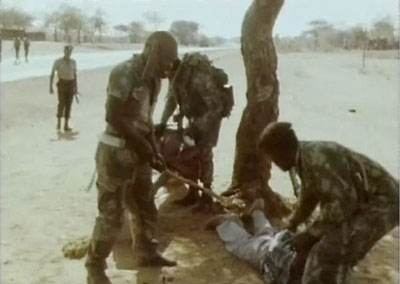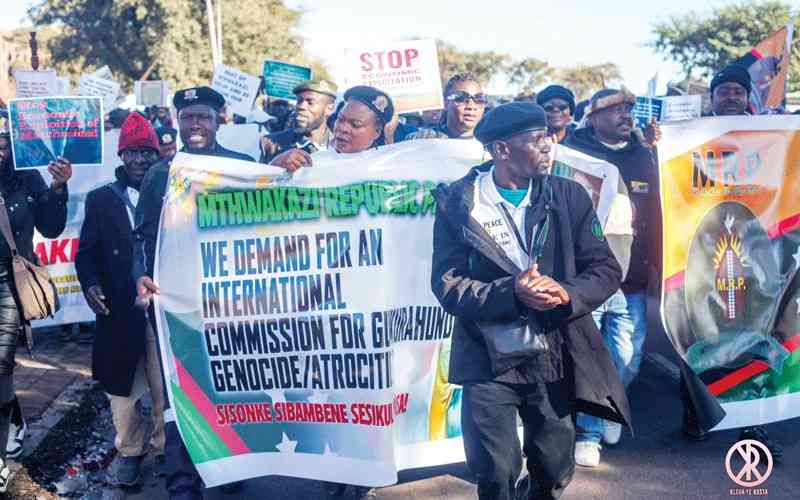
IBHETSHU Likazulu, a pressure group based in Bulawayo, has filed an urgent chamber application at the Bulawayo High Court challenging the police ban on its Gukurahundi commemorations. SILAS NKALA STAFF REPORTER
The group, represented by R Ndlovu and Company, filed their application on February 11 and have cited the Officer Commanding Police Bulawayo West District as a respondent.
“The respondent made an unfair administrative decision to prohibit the applicant from convening a public prayer meeting without giving the applicants any rational reasons or seeking consultation with the applicant as required by Section 26(3) of the Public Order and Security Act Chapter 11:12,” reads the application.
“The respondent’s action is unlawful in that it contravenes the provisions of Section 3 of the Administrative Justice Act Chapter 10:28.”
They indicated that they intended to convene a scheduled commemorative public prayer meeting on February 21 2015 in the exercise of their constitutional rights.
They said only an urgent intervention of the court could secure administrative justice for them by setting aside the prohibition order issued by the police and direct cops to allow them to convene their public prayer meeting.
The founding affidavit of Mbuso Fuzwayo, the secretary and trustee of the organisation, said the group was registered as a trust on March 5 2007.
“One of the objectives of the applicant as a civil organisation is to protect and promote the political, social and cultural education and awareness of topical issues in the western part of Zimbabwe,” reads Fuzwayo’s affidavit.
- Chamisa under fire over US$120K donation
- Mavhunga puts DeMbare into Chibuku quarterfinals
- Pension funds bet on Cabora Bassa oilfields
- Councils defy govt fire tender directive
Keep Reading
“As part of its political, social and cultural education awareness project, the applicant, ever since its formation, convenes annual public prayer meetings to commemorate or remember all the people who died in the western part of Zimbabwe during the military operation of the 5 Brigade army commonly known as Gukurahundi.”
He said his organisation had this year scheduled an annual public prayer meeting for January 24 2015, but the police issued a prohibition order alleging that the meeting was likely to create public disorder.
“In the said prohibition order, the respondent did not give any reason as to why it formulated the opinion that the public prayer meeting would cause public disorder,” submitted
Fuzwayo. “The respondent acted unreasonable, unfairly and unlawfully by issuing a prohibition order against the applicant convening a public prayer meeting without following due process as stipulated in Section 16 of Posa (Public Order and Security Act).”
He said the organisation had been forced to seek urgent relief by way of declaratory order and mandamus.
“I, therefore, pray for an order granting the applicant relief by declaring the administrative decision taken by the respondent to prohibit a public prayer meeting to commemorate the people who died during Gukurahundi operation unreasonable, unfair and unlawful and setting it aside,” Fuzwayo wrote.
“I further seek an order directing the respondent to follow due process and allow the applicant to convene the prayer meeting on February 21 2015.”










